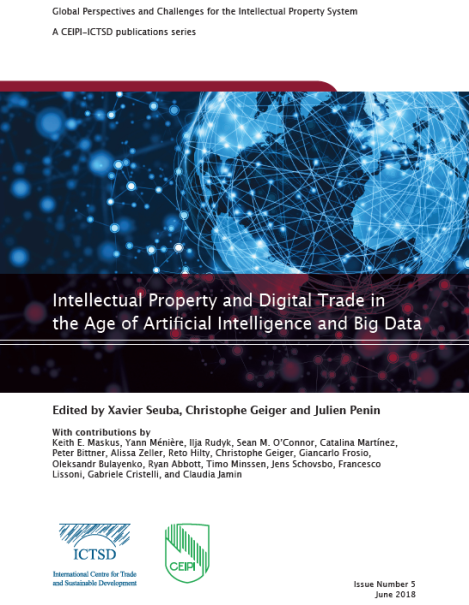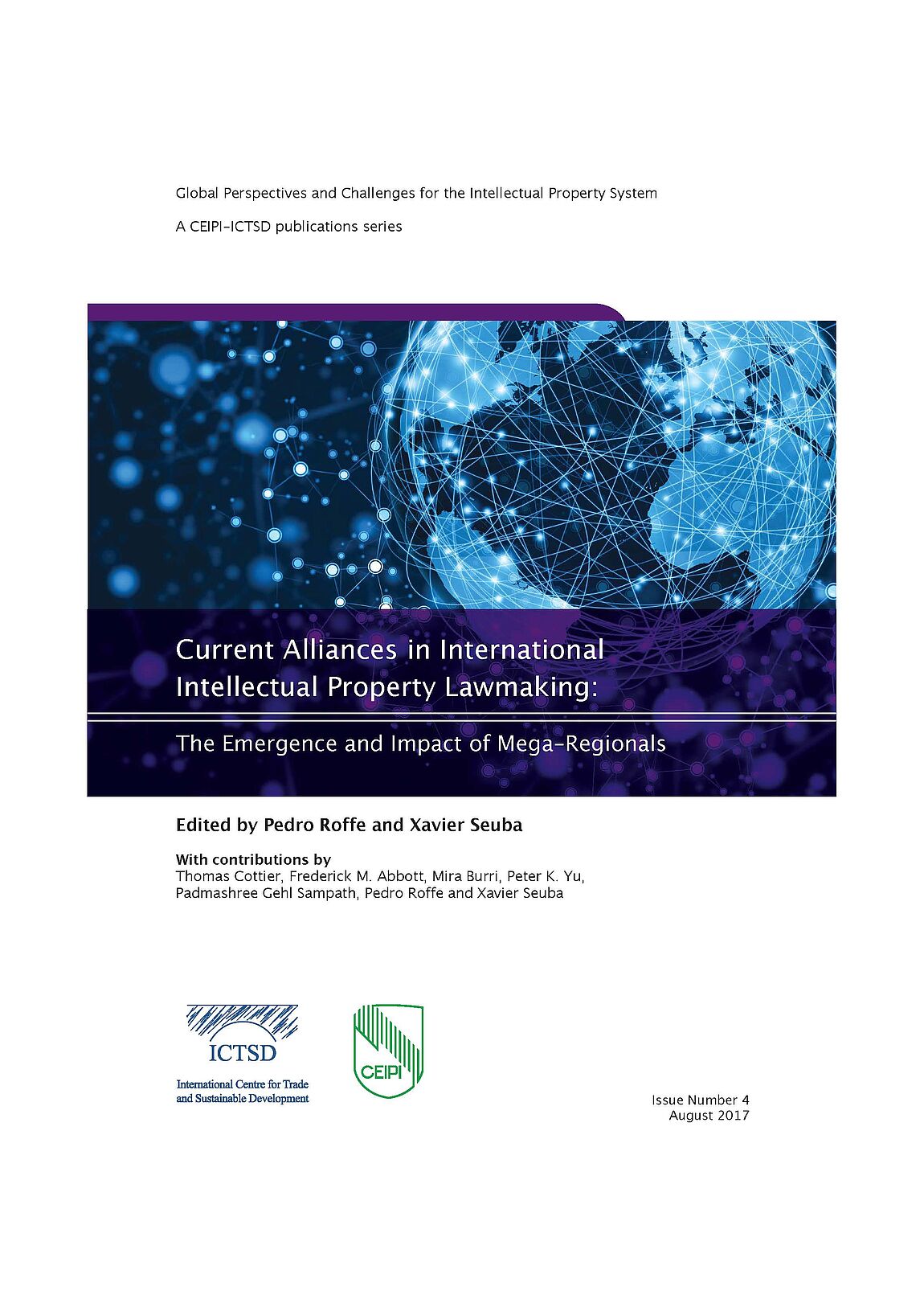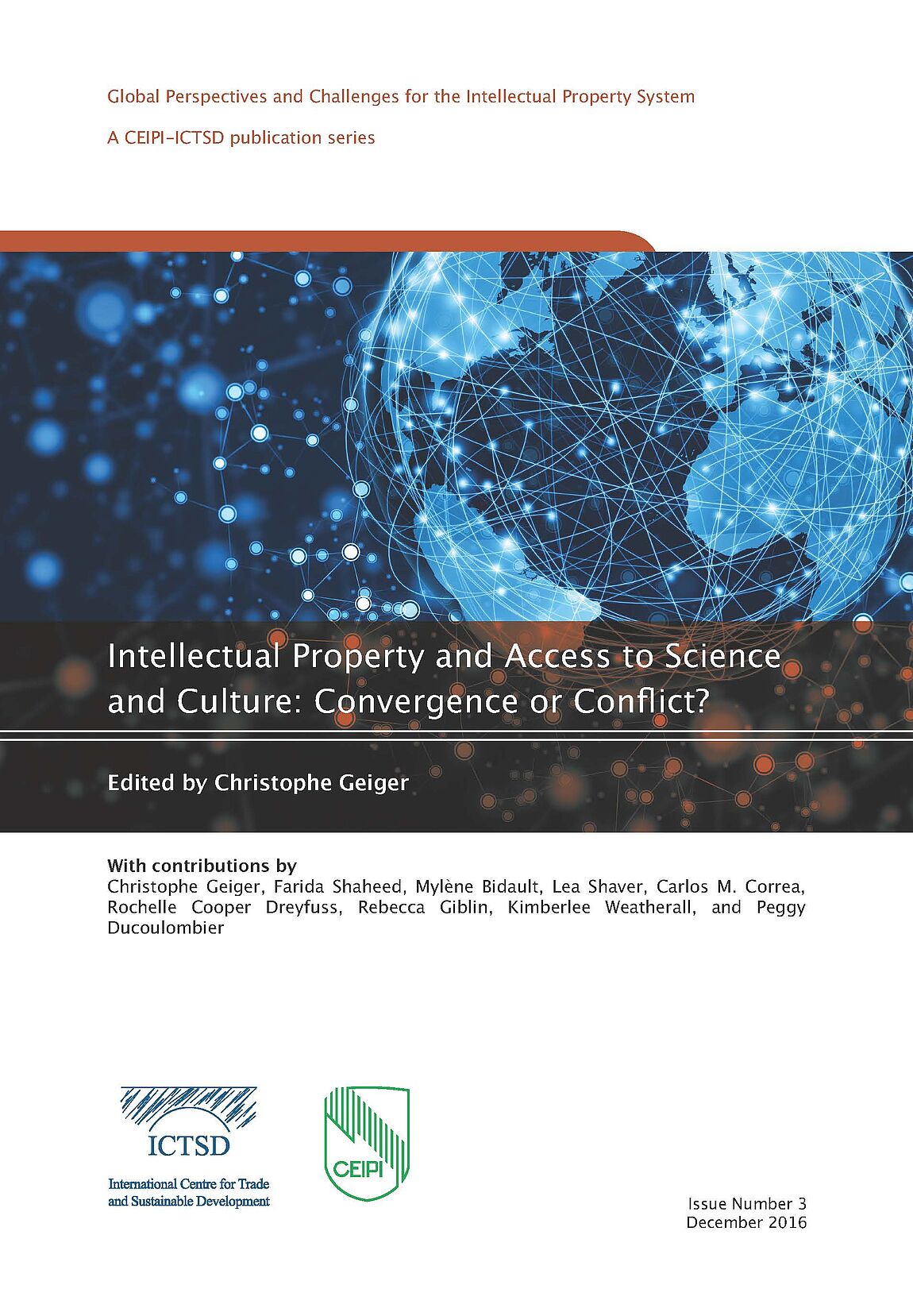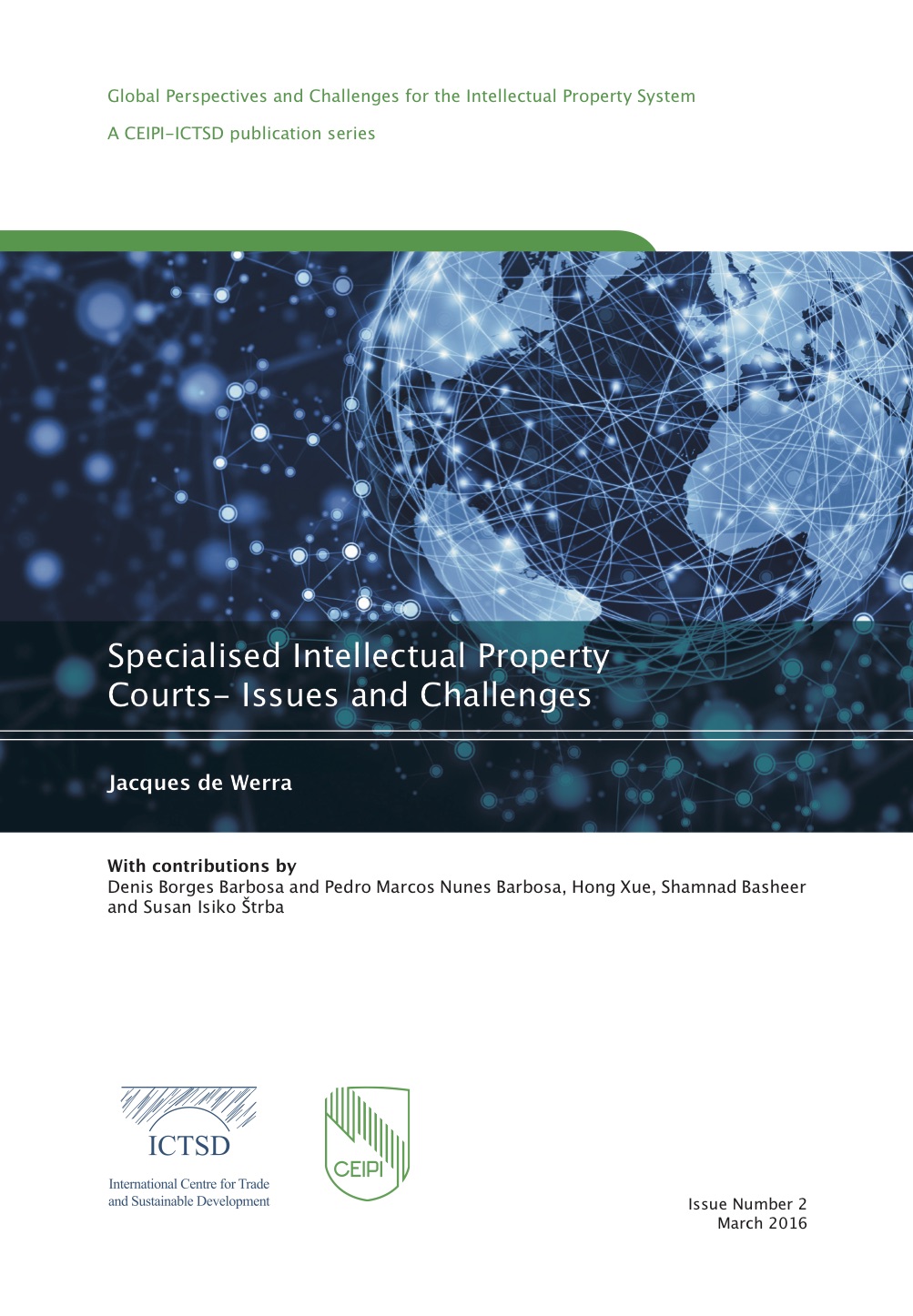Intellectual Property and Digital Trade in the Age of Artificial Intelligence and Big Data CEIPI/ICTSD Publications Series, Issue 5
The Center for International Intellectual Property Studies (CEIPI) is pleased to announce the publication of the fifth issue in the CEIPI/ICTSD series on Global Perspectives and Challenges for the Intellectual Property System, produced jointly with the International Centre for Trade and Sustainable Development (ICTSD).
This new issue, Intellectual Property and Digital Trade in the Age of Artificial Intelligence and Big Data, edited by Xavier Seuba, Christophe Geiger and Julien Pénin, elaborates on changes in modes of innovation, production and commercialisation of innovation, which are central in current discussions and relate closely to intellectual property law and competition. The chapters of this volume feed the debate, identify the central aspects and may be instrumental at drafting a research agenda.
The origin of this publication was the conference Intellectual property and digitalization: challenges for intellectual property management, organised in May 2017 by the CEIPI–Bureau d'économie théorique et appliquée (BETA) Project in Law and Economics of Intellectual Property, in association with the International Institute for Intellectual Property Management (I3PM). The objective of the conference was to shed light on the most recent evolution in intellectual property brought by digitalisation, gathering an eclectic group of experts from academia, public institutions, and industry.
The CEIPI–BETA Project in Law and Economics of Intellectual Property was launched in 2013, becoming the first joint research initiative of two constituent bodies of the University of Strasbourg, made up by law and economics scholars. Seminars, workshops, publications and conferences have been possible since then thanks to the interaction of both groups of scholars and the support of Air Liquide and Total.
This publication contains two largely interdependent parts. Part One: From Digital Trade to Commercialisation and Management of Intellectual Property includes contributions by Keith E. Maskus, Yann Ménière and Ilja Rudyk, Sean M. O’Connor, Catalina Martínez, Peter Bittner, and Alissa Zeller. Part Two: Regulating and Using Big Data in the Digital World includes contributions by Reto Hilty, Christophe Geiger, Giancarlo Frosio, and Oleksandr Bulayenko, Ryan Abbott, Timo Minssen and Jens Schovsbo, Francesco Lissoni and Gabriele Cristelli, and Claudia Jamin.
The CEIPI/ICTSD publication series provides high quality academic and policy-oriented papers dealing with topics that are of global relevance because of their normative pre-eminence, economic relevance, and socio-economic impact.



